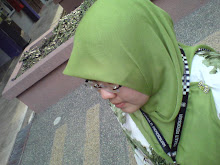TOPIC: The Value of Friendship
THEME: People and Social Issues
TIME: 1 hour 10 minutes
LANGUAGE CONTENT: Conjunctions
AIMS: By the end of the lesson, students should be able to locate Conjunctions on a Website and to be able to practice writing.
TECHNICAL REQUIREMENT:
1) One computer for each pair of students
2) Internet connection
3) Web Browser
4) Printer
WEBSITES: http://www.friendship.com.au/media/songs/
PREPARATION:
1) Browse and locate suitable sites about friendship songs.
2) Check the accuracy and appropriateness of the sites for the students.
3) Using the information on the site, prepare worksheets.
PROCEDURE:
Set Induction
1) Introduce the topic of the day.
2) Recap the previous lesson on Conjunctions.
Task 1
1) Ask students to sit in pairs and share a computer.
2) Send students to the website chosen and ask them to choose any song (with lyric) that really reflects their friendship at the present.
3) Ask students if they had any problems while using the website.
4) Ask them to copy and paste the lyrics in a new document of Microsoft Word.
5) Next, they will have to locate Conjunctions in the lyrics and underline it.
6) Demonstrate using the website and give an example to complete the task.
7) After the students have done this, ask them to print the document directly from the computer.
Task 2
1) Ask the students for the list of feelings that they know and write them on board. Select students to provide example for each.
2) Distribute the worksheet prepared to each student. The students need to do the task individually.
3) Find a sentence from the lyrics that describe any of these feelings. Next, write the sentence in the space provided. Put a dash (-) if there is no sentence suitable for certain feelings.
Task 3
1) Distribute the worksheet prepared to each student. The students need to do the task individually.
2) Ask them to write and explain why they chose the song and share their feelings, experience or opinions in the space provided.
3) Encourage them to use Conjunctions and type of feelings that they have identified earlier.
4) Ask the students to submit the task before the class ends.
FOLLOW-UP: Each student has to find the song that they have picked earlier and E-mail it to the teacher before the next class.





